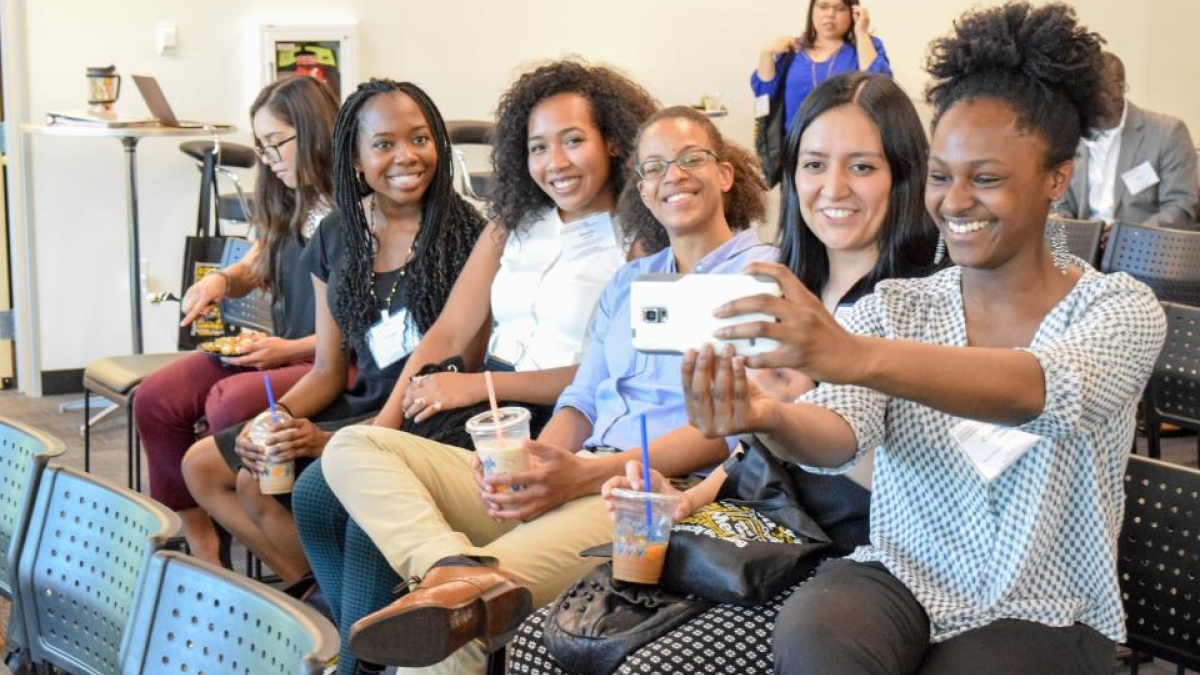As startups continue to drive innovation, women and minorities remain underrepresented in the tech industry. To address the problem, ASU's Center for Gender Equity in Science and Technology (CGEST) and ASU Entrepreneurship and Innovation are partnering to encourage and support members of these groups at the upcoming Women of Color STEM Entrepreneurship Conference.
CGEST advocacy manager Sharon Torres said STEMScience, Technology, Engineering and Math — and especially technology — is “an industry that’s outpacing many others.” The conference, “HERstory Is Our Story: Creating A Legacy Through STEM Entrepreneurship,” will provide much-needed resources and networking opportunities for women and women of color this month at Gateway Community College in Phoenix.
It’s the second year for the conference, and it’s done a lot to bring awareness to the subject but there’s still “a significant need” for improvement, said associate vice president of ASU Entrepreneurship and Innovation Ji Mi Choi.
On that note, Torres, Choi and executive director of the Cronkite New Media Innovation and Entrepreneurship Lab Retha Hill — who will speak on automation in the work force at the conference — shared their tips on a few things that are important to keep in mind going forward.
1. Keep the cause alive
“Building awareness among advocates and allies is the easy part,” Torres said. “Building awareness among those who may not have considered or realized this is an issue is the hard part.”
That’s why it’s important to keep talking about it and stay involved. You never know whose opinion you might change or what connections you might make.
“I think when you open up and talk about it with others, you’ll find you’ll meet your allies, you’ll meet like-minded people but more importantly, you’ll meet people who you can help educate and become more aware,” Torres added.
2. “Shake it off”
Know your worth, and make others know it, too. Hill can recall instances where she was the only black woman at a conference or meeting but she didn’t let it get to her.
“You just have to shake it off and let them know you deserve to be there,” she said.
And if calling yourself an “entrepreneur” seems intimidating, you can still learn how to think like one. Just having the framework to come up with answers to difficult questions is a great start, Hill said, “So you shouldn’t see a lack of experience as an impediment.”
3. Utilize modeling resources
Both CGEST and ASU Entrepreneurship and Innovation provide models to women and minorities on how to achieve success: CGEST’s nationally renowned CompuGirls program introduces young girls from under-resourced school districts to technology, and ASU Entrepreneurship and Innovation just received a $245,000 grant to develop best practices for diversity and inclusion.
Taking advantage of resources like these can “cultivate qualities of curiosity and creativity that can be used for empowerment,” Choi said.
4. Never give up
All entrepreneurs experience setbacks and question their abilities at times but that’s no reason to give up — no matter how large or small your venture is.
“There’s some denigration about ‘small’ entrepreneurs,” Choi said. “There’s really nothing small about being an entrepreneur who opens a business. … There’s nothing small about it when you’re deciding to put your life savings into it.”
And no matter what you end up pursuing, you can certainly co-opt entrepreneurial thinking, such as creative problem-solving, Choi said. “There are transferable skills no matter what you do in your life.”
Top photo: Last year's conference attendees snap a selfie. Photo courtesy of the Center for Gender Equity in Science and Technology.
More Science and technology

Transforming Arizona’s highways for a smoother drive
Imagine you’re driving down a smooth stretch of road. Your tires have firm traction. There are no potholes you need to swerve to avoid. Your suspension feels responsive. You’re relaxed and focused on…

The Sun Devil who revolutionized kitty litter
If you have a cat, there’s a good chance you’re benefiting from the work of an Arizona State University alumna. In honor of Women's History Month, we're sharing her story.A pioneering chemist…

ASU to host 2 new 51 Pegasi b Fellows, cementing leadership in exoplanet research
Arizona State University continues its rapid rise in planetary astronomy, welcoming two new 51 Pegasi b Fellows to its exoplanet research team in fall 2025. The Heising-Simons Foundation awarded the…


